How AI is Changing the Future of eCommerce

Artificial intelligence (AI) has become a buzzword in recent years and for a good reason. AI is changing how we do business in many industries, including e-commerce. From personalized product recommendations to chatbots and virtual assistants, AI is transforming the e-commerce landscape. In this article, we'll explore AI, how AI can help e-commerce businesses, and what the future holds for this exciting technology.
What is AI?
AI, or Artificial Intelligence, is a field of computer science that focuses on creating intelligent machines that can perform tasks that typically require human intelligence. This can include things like understanding and interpreting language, recognizing patterns, making predictions, and making decisions. AI encompasses a range of technologies, including machine learning, natural language processing, robotics, and computer vision. AI aims to create machines that can learn, adapt, and improve over time, ultimately making our lives easier and more efficient.
History of AI

The history of AI began in the mid-20th century when computer scientists started exploring the idea of creating machines that could think and learn like humans. The Dartmouth Conference in 1956 is considered the birthplace of AI as a field of study. Over the years, researchers made significant progress in developing AI technologies, including machine learning algorithms and natural language processing systems. However, interest in AI waned in the 1970s due to a lack of funding and disappointing results. In the 1980s and 1990s, AI research experienced a resurgence, driven by computer hardware advances and new AI technologies development. Today, AI is a rapidly growing field with applications in many industries, such as healthcare, finance, and entertainment. Advances in deep learning, natural language processing, and robotics are pushing the boundaries of what is possible with AI.
10 Best AI Tools for eCommerce
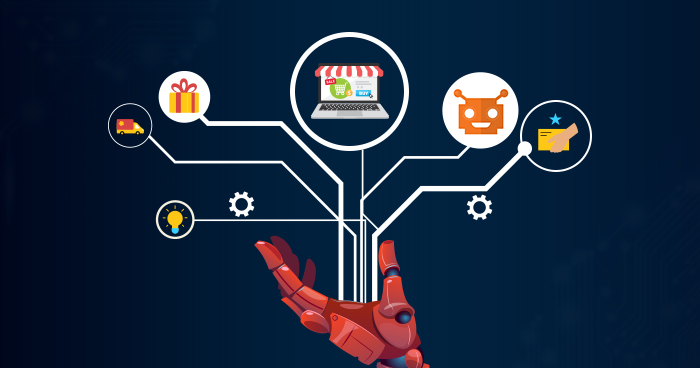
1. ChatGPT

A valuable tool for e-commerce businesses to provide personalized customer support, automate specific tasks, and enhance the overall user experience. It can generate human-like responses to customer inquiries and support requests, provide product recommendations, and even help create content for e-commerce businesses. ChatGPt can analyze customer conversations and provide insights into customer behavior, helping e-commerce businesses identify areas for improvement and optimize their customer service strategies. It can also offer language translation services, helping e-commerce businesses reach a global audience and improve their customer support for non-native speakers. ChatGPT can help e-commerce businesses provide better customer service and increase sales.
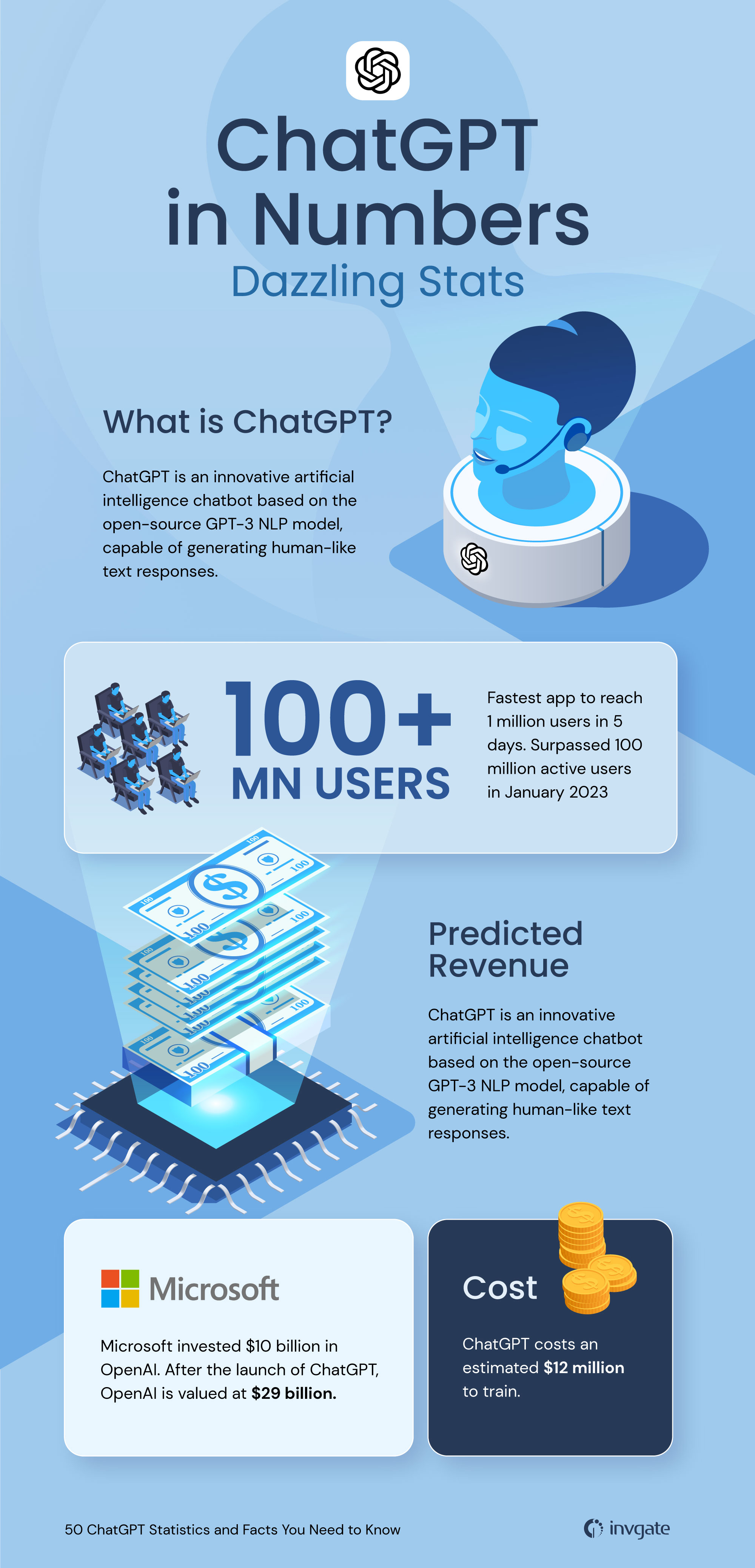
2. Grammarly
3. PriceMole

A tool for e-commerce businesses that can help monitor competitors' prices analyze market trends and optimize pricing strategies. PriceMole uses machine learning algorithms to track and analyze competitors' prices and automatically adjust prices to stay competitive. It can also provide insights into product demand and customer behavior to help businesses make informed pricing decisions.
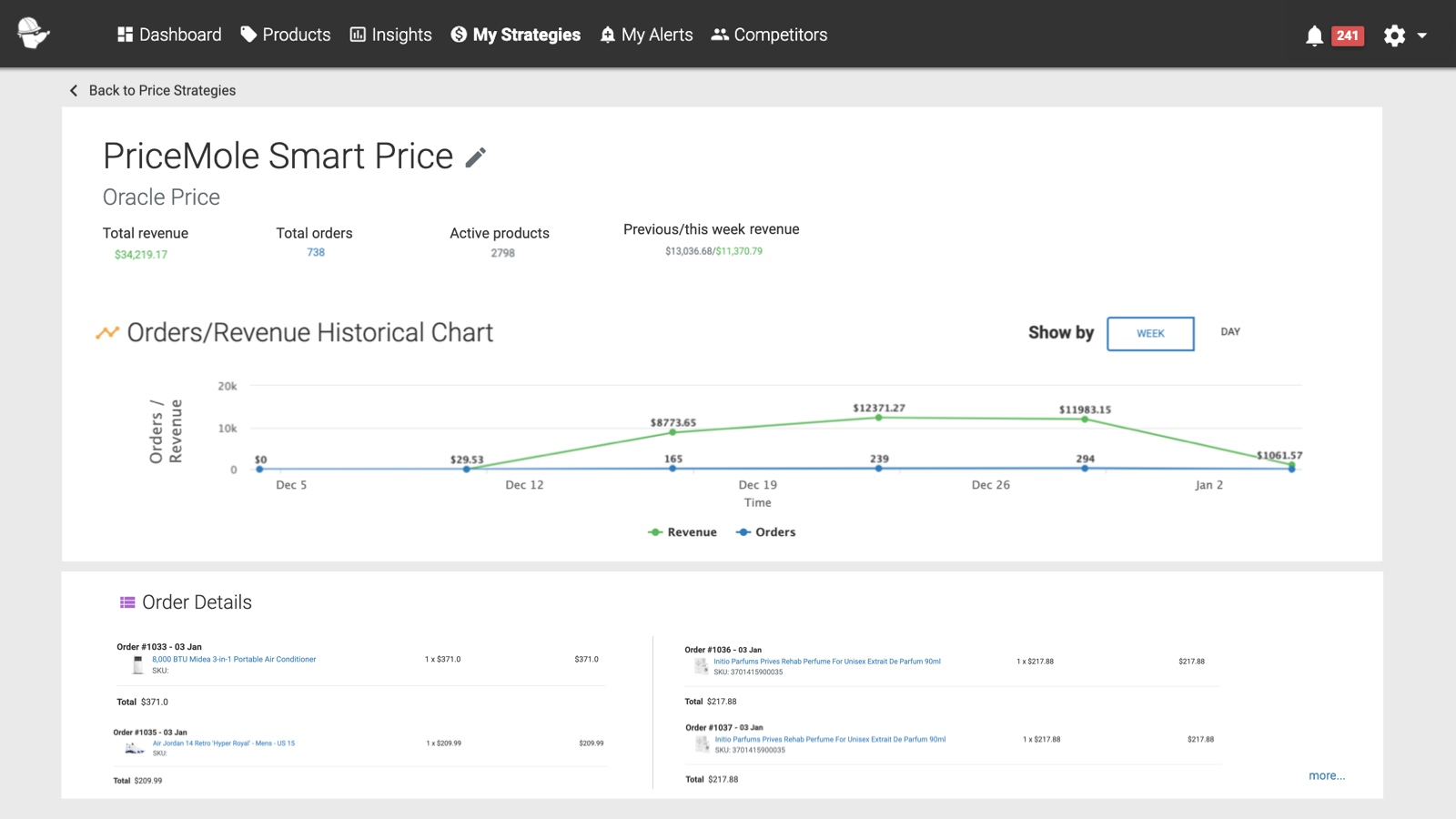
Overall, PriceMole is a valuable AI tool for e-commerce businesses looking to optimize their pricing strategies and improve their competitiveness in the market.
3. Salesforce Einstein
 Salesforce Einstein is designed to help businesses automate their sales and marketing processes. It uses machine learning algorithms to analyze customer data and provide personalized recommendations for products and services.
Salesforce Einstein is designed to help businesses automate their sales and marketing processes. It uses machine learning algorithms to analyze customer data and provide personalized recommendations for products and services.
4. Hootsuite Insights

Hootsuite Insights is an AI-powered social media monitoring tool that can help e-commerce businesses monitor social media conversations and trends and identify potential influencers and advocates.
5. Dynamic Yield

This tool provides a range of solutions for e-commerce businesses, including personalized product recommendations, A/B testing, and automated email marketing. Dynamic Yield uses machine learning algorithms to analyze customer behavior and provide customized experiences.
7. IBM Watson
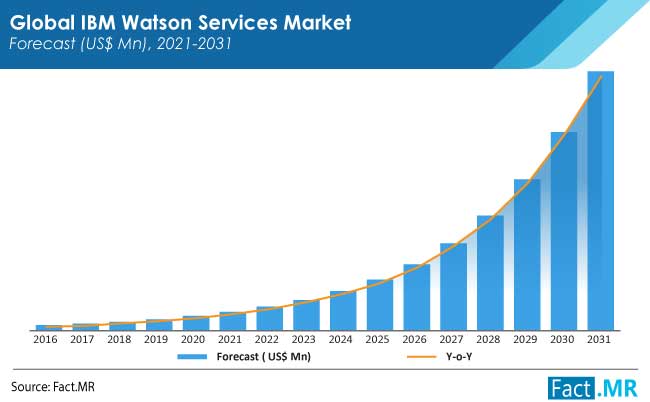
IBM Watson is a platform that can be used for various tasks, including natural language processing, image recognition, and data analysis, to help e-commerce businesses automate and optimize multiple tasks.
8. Adobe Sensei

Adobe Sensei can be used for various tasks, including image recognition, data analysis, and content creation, to help e-commerce businesses optimize their marketing and design strategies.
9. Optimizely

This tool is designed to help businesses optimize their website design and user experience. It provides A/B testing and personalization solutions that can be used to improve conversion rates and customer engagement.
10. BrightEdge
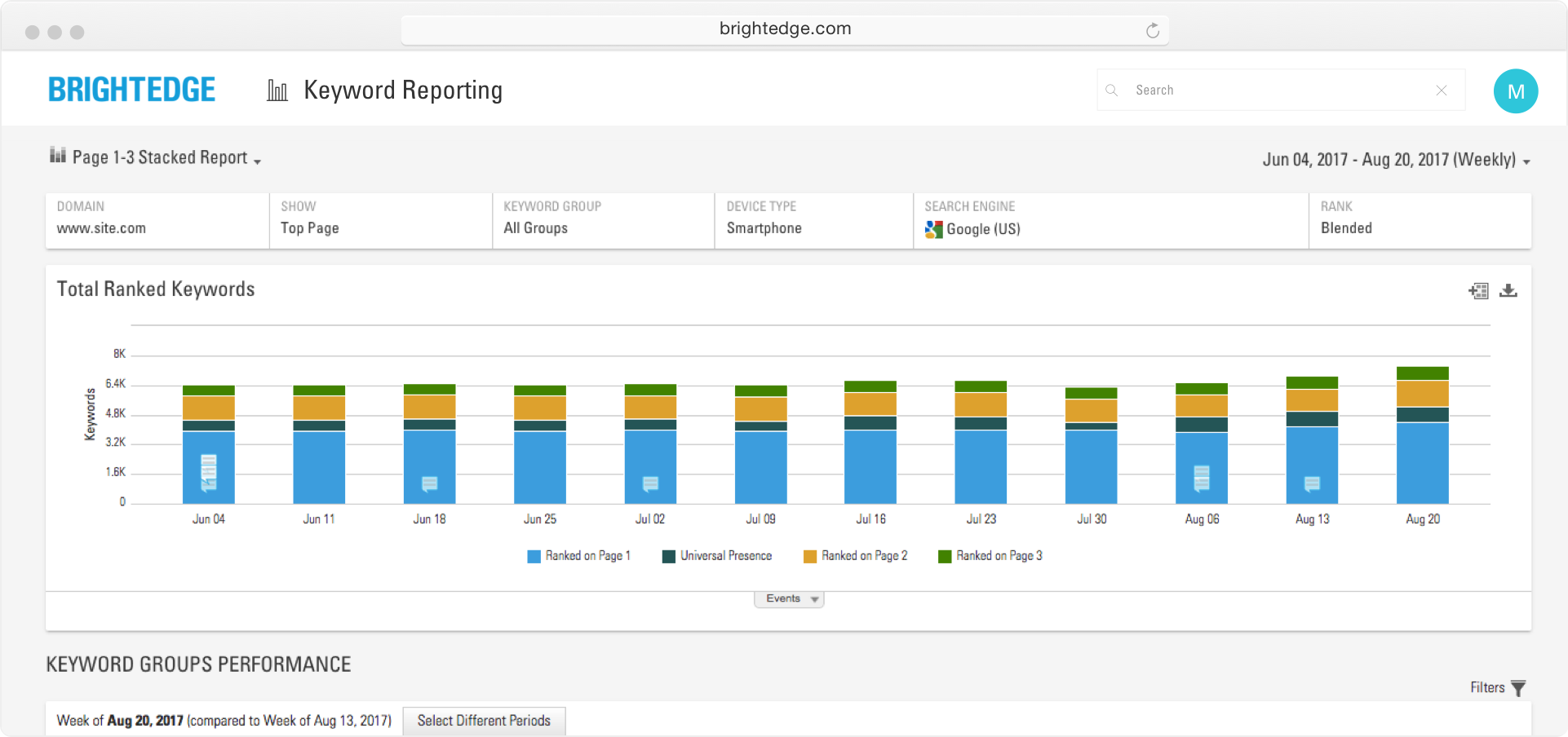
BrightEdge is an AI-powered SEO platform that can help e-commerce businesses optimize their search engine rankings and increase organic traffic to their website.
These are just a few examples of the many AI tools available for eCommerce businesses. The best AI tool for any eCommerce business will depend on its needs, goals, and budget.
"The pace of progress in artificial intelligence (I’m not referring to narrow AI) is incredibly fast. Unless you have direct exposure to groups like Deepmind, you have no idea how fast—it is growing at a pace close to exponential." - Elon Musk, Tesla, SpaceX, Neuralink, and The Boring Company,CEO
AI is revolutionizing the e-commerce industry by providing businesses with powerful tools to optimize their operations, enhance the customer experience, and drive revenue growth.
Revolutionizing E-commerce: The Crucial Roles of AI
Personalized Product Recommendations

One of the most significant ways that AI is helping e-commerce businesses is through personalized product recommendations. By analyzing data such as purchase history, browsing behavior, and even social media activity, AI algorithms can make highly accurate product recommendations to individual shoppers. Personalized Recommendations improve the customer experience and increase sales and customer loyalty.
In a nutshell, AI can automate and optimize various tasks for e-commerce businesses like the following:
- Generating unique product descriptions and images
- Providing insights for website design
- Writing custom code to customize your store theme and functions
- And even creating complicated formulas for spreadsheet applications.
AI can save time and resources, increase productivity and efficiency, and improve customer engagement and conversion rates.
Personalization is a critical factor in e-commerce success. Customers want to feel like they are being treated as individuals, not just another number in a database. AI can help e-commerce businesses achieve this level of personalization by analyzing vast amounts of data to identify patterns and make recommendations tailored to each customer's preferences.
For example, Amazon's recommendation engine uses machine learning algorithms to analyze customer data and make personalized recommendations. By analyzing data such as purchase history, browsing behavior, and search queries, Amazon's recommendation engine can make product recommendations that are highly relevant to each customer's interests.
Chatbots and Virtual Assistants
Another way that AI is helping e-commerce businesses is through chatbots and virtual assistants. Chatbots are computer programs that can simulate conversations with human users. At the same time, virtual assistants are more advanced chatbots that can perform various tasks such as booking flights, making restaurant reservations, and even ordering products online.
AI-powered chatbots and virtual assistants are becoming increasingly common in e-commerce. These tools can provide quick and efficient customer support, helping customers navigate the shopping process and answer any questions. Chatbots can also automate tasks such as order tracking and returns, freeing up customer service representatives to focus on more complex issues.
For example, H&M's chatbot, Kik, can help customers find products, make recommendations, and even make purchases. The chatbot uses natural language processing (NLP) to understand customer requests and respond with relevant information.
Fraud Detection
AI can also be used to detect and prevent fraud in e-commerce transactions. Fraud is a significant concern for e-commerce businesses, and AI can help detect fraudulent activity by analyzing vast amounts of data and identifying patterns.
Secure checks help prevent fraudulent transactions and protect the merchant and the customer. For example, PayPal uses machine learning algorithms to detect fraudulent transactions. By analyzing transaction history, IP addresses, and device information, PayPal's fraud detection algorithms can quickly identify suspicious activity and flag it for further review.
Inventory Management
AI can also be used to optimize inventory management in e-commerce. By analyzing historical sales trends and customer behavior, AI algorithms can predict demand and ensure that the right products are in stock at the right time. AI Inventory management reduces the risk of overstocking or understocking, improving efficiency and profitability.
For example, Walmart uses machine learning algorithms to optimize inventory management. By analyzing historical sales trends and weather patterns, Walmart can predict demand and ensure that the right products are in stock at the right time.
Supply Chain Optimization

Finally, AI can optimize the entire supply chain in e-commerce. By analyzing data such as shipping times, transportation costs, and warehouse locations, AI algorithms can optimize the supply chain to minimize costs and improve efficiency. AI Supply Chain Optimization ultimately leads to faster delivery times and a better customer experience.
For example, UPS uses AI to optimize its delivery routes. By analyzing data such as traffic patterns, delivery locations, and package weights, UPS can optimize its delivery routes to minimize. Source: Forbes

In conclusion, AI is transforming the e-commerce industry in numerous ways. From personalized product recommendations to chatbots and virtual assistants, fraud detection, inventory management, and supply chain optimization, AI-powered solutions like PriceMole are helping Shopify or BigCommerce stores increase sales, reduce costs, and optimize efficiency. As AI continues to evolve, we can expect even more exciting developments in the e-commerce industry. E-commerce businesses that embrace AI and use it to their advantage will be better equipped to compete in a rapidly changing digital landscape and meet the ever-evolving needs of their customers.
Watch your revenue grow, save time with an AI tool to automated repricing, and be sure to beat your competitors!
Contact us now to learn more about implementing a customized pricing strategy for your business, or check out our Website, Shopify, BigCommerce, Facebook, Twitter, and LinkedIn.
